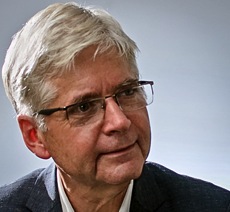
A post in LI this week highlights an important aspect of how we’ve been dealing with Covid which, until now, has been largely overlooked…it’s an increase in the levels of care we have for each other.
In the work context, caring definitely feels like something that’s much more out there. For example, e-mails opening with ‘How are You?’ might have got a cynical reaction before but now, for me anyway, now convey a sense of connection.
So these days, I’m actually starting all my messages …work as well as social …with ‘How are You?’ because, somehow it really does satisfy a desire to reciprocate with more than just a formal greeting.
In an article I posted here on January 27 (and still listed below) I quoted from Tun Tsu’s ‘Art of War’ that ‘In the midst of chaos there is opportunity’
Tsu’s work is enshrined in the Theory of Disruptive Innovation published by Clayton M Christensen and his collaborators at Harvard in 1995 and according to Wikipedia, has been called ‘the most influential business idea of the early 21st century’
It’s the concept that the sudden arrival of an ‘out of the box’ phenomenon can shake up the status quo so drastically that it open’s up opportunities to put things back better. An early example of this was the appearance in the 1950’s of cut price clothing stores in the US which, having got a foothold in the market, overtook the established outlets and went on to dominate the market.
By comparison with that example of Disruption, Covid is of course massive, global, invisible and deadly enough to move the workforce out of their offices and bring about an overnight change in work practices that was unforeseen.
In the article I asked ‘What can we take from the adaptations and changes that were made on the run when Covid hit and build on them going forward to create ‘good Disruption?’
As an answer to my own (long) question, I came up with this…‘by giving working life a new level of meaning and purpose’ which sounds idealistic to me now but why not?
There have been more down to earth outcomes from Covid, the most significant of which, for me, are in the human category … the small child of a politician walking in during his father’s tv interview, a change in the way we viewed a colleague after seeing them at home on conference calls or getting an email from the boss that begins with ‘How are You?’
So how are we? The signs indicate that organisations are ready to move on but to what exactly? How do you feel about that?
Media reports suggest that expectations differ depending on who you talk to. In very general terms, employers seem to be getting ready to go back to ‘normal’ … working back in the office by the end of the year. Yet further opinions suggest that this is being met with some resistance.
Working remotely, we have been experiencing a greater sense of responsibility… taking more ambitious initiatives, connecting with opposite numbers both inside and outside the organisation and that’s good.
At the same time, we may have found that having to manage home life has led to a less rushed, more satisfying experience.
Which (if either) of the above scenario’s sound like ‘back made better’ to you?
My input on the first one i.e. more responsibility, is to consider talking to someone working in your L&D department. They will be up-to-speed on how to develop the skills that will help you to take on the specific tasks that you are considering.
If we’re going to be refining and consolidating the innovations which Disruption triggered, there will be possibilities of more transformation going forward.

 After working in sales and then purchasing roles for almost 18 years with companies in the UK, Japan, Korea and then here in Hong Kong, I became involved in the field of business skills development. 20 years later, my special interests in this area are individual management style building, interpersonal communication and influencing strategies.
After working in sales and then purchasing roles for almost 18 years with companies in the UK, Japan, Korea and then here in Hong Kong, I became involved in the field of business skills development. 20 years later, my special interests in this area are individual management style building, interpersonal communication and influencing strategies. 